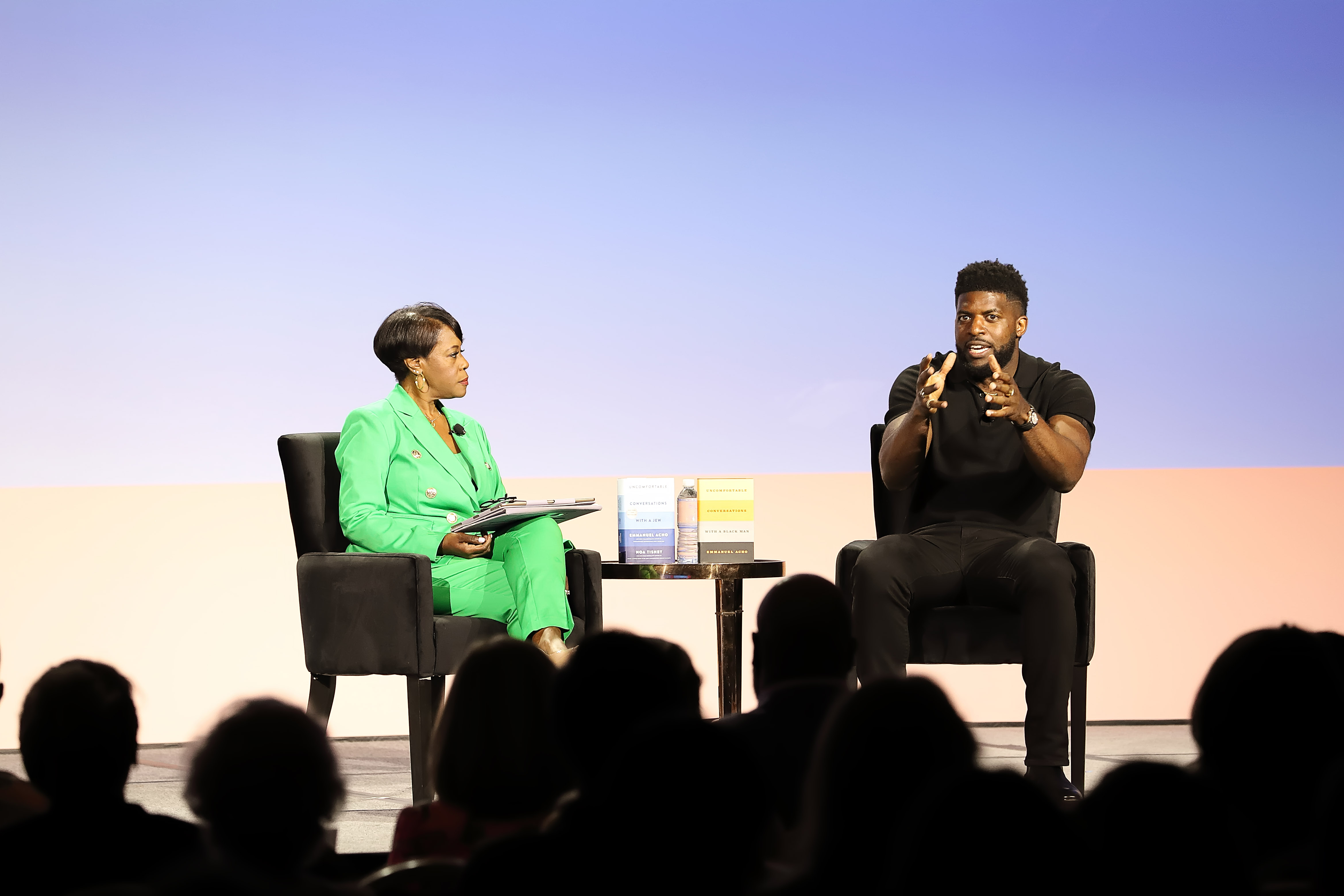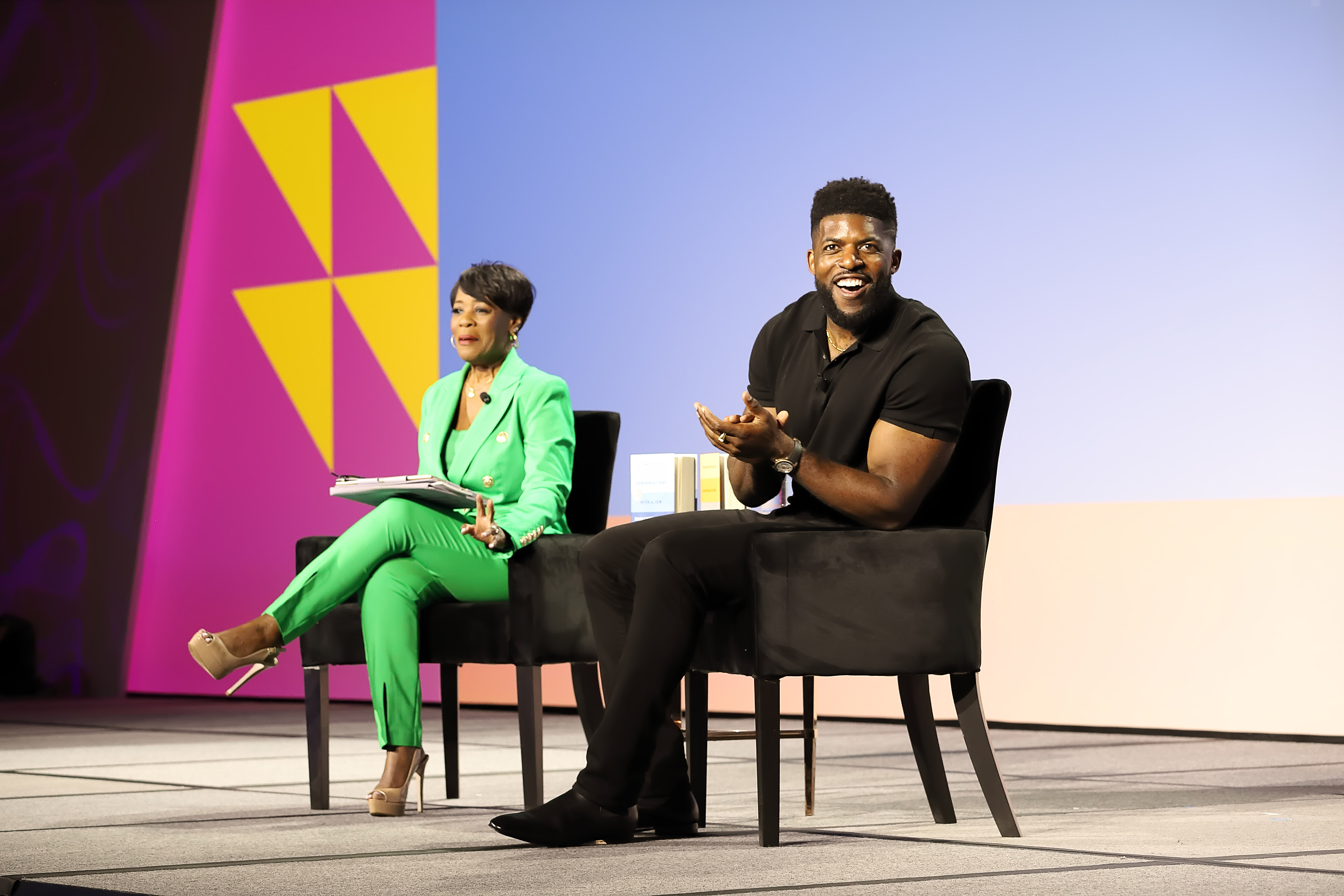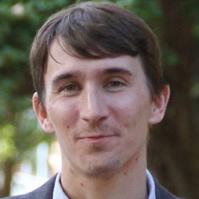AP Annual Conference 2024
Finding Joy in Uncomfortable Conversations

By his own telling, Emmanuel Acho shouldn’t be here. Not on a stage addressing thousands of teachers. Not on television speaking as an authority on democracy and civic engagement. Not sitting alongside Oprah Winfrey, discussing his latest best-selling book about the need for more empathy and understanding in our divided society.
Acho insists that he wasn’t a standout student in high school. Nor was he the kind of kid with confident ambition to make an impact on the world. But the sports star from a hyper-competitive high school went on to become a successful NFL player, an admired analyst for ESPN, and then a hugely influential author and public intellectual focused on getting Americans talking across lines of difference.
“I wouldn’t be here if not for so many of my teachers,” he told a 3,000-strong crowd at the opening plenary of the 2024 AP Annual Conference. “If not for seeds that were planted, I wouldn’t even be here. I wasn’t even smart in high school, compared to the geniuses I went to school with, but someone planted a seed.”

I wouldn’t be here if not for so many of my teachers. If not for seeds that were planted, I wouldn’t even be here. I wasn’t even smart in high school, compared to the geniuses I went to school with, but someone planted a seed.
Emmanuel Acho, Author, Sports Analyst, Former Professional Football Player

That seed has grown into a publishing and podcasting empire that amplifies Acho’s buoyant hope in the power of honest conversation to help people overcome their biases and fears. In 2020, during the nationwide protests over the death of George Floyd, Acho was seized with the idea of putting all the uncomfortable cards about race on the table, paying out of his own pocket to film a video of himself answering some of the hardest questions about what it means to be Black in America. Thanks to Acho’s fearless, joyful approach to a difficult subject, the video almost instantly racked up millions of views.
“I have this urge to speak in society,” Acho said. “I went to school with predominantly white people, and I went to church with predominantly Black people.” That natural comfort in different spaces, an eagerness to engage people different from him, gave Acho a sense of moral calling. He came to believe it was his duty to speak about the possibility of understanding through earnest engagement, of conquering ignorance through conversation.
“Proximity breeds care, and distance breeds fear,” Acho stated. “There’s so much fear in our society.”
To combat it, he wrote Uncomfortable Conversations With a Black Man, a hopeful but direct attempt to answer taboo questions about race relations. “In these pages, the only bad question is an unasked question,” Acho writes near the opening of the book. “Everything great is birthed through discomfort.”
That’s the call he brought to the assembled AP teachers, imploring them to dive into challenging topics by welcoming awkward or ignorant questions as a tool for sparking good conversation. Acho compared the discomfort of discussions about race to the intense discomfort of NFL training camp, insisting that it’s grueling at first but eventually comes to feel routine and even healthy. To be effective learners, students and teachers alike must be “comfortable being uncomfortable,” he added.
He called on teachers to remember their power, to continue planting seeds even when they’re unsure of the outcome. “Teachers and educators, y’all have so much power. You have the power to infuse belief in an individual, and you have the power to undermine belief in an individual,” he claimed, leaning forward and lowering his voice. “Many of you all will plant the seeds, and you’ll have no idea what kind of tree, what kind of resources bloom from that seed. But plant the seed, anyway.”
Teachers and educators, y’all have so much power. You have the power to infuse belief in an individual.
Emmanuel Acho, Author, Sports Analyst, Former Professional Football Player

